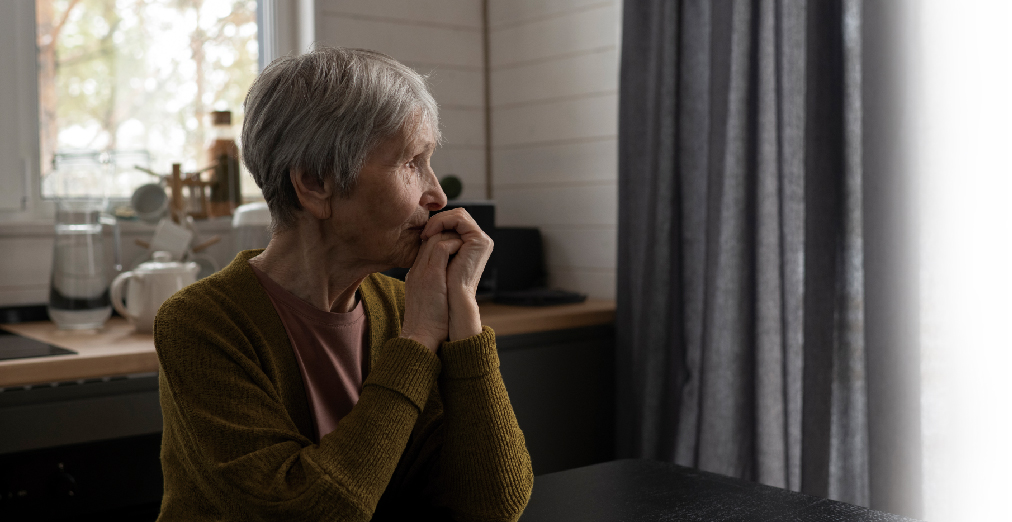Understand Elderly Depression

What is Elderly Depression? A Simple Assessment

“Ever since dad passed away, mom often talks about having trouble sleeping, sleeping lightly, and feeling down. She’s also quite forgetful and frequently says she’s old and useless. I was worried she might be developing dementia, but the doctor thinks she might be depressed.” Elderly depression is a real possibility among our parents and older loved ones. Let’s deepen our understanding of elderly depression, how it differs from dementia, and provide them with appropriate support and companionship.
Elderly depression is a mental and emotional disorder that affects individuals aged 65 and older. Below is an “Elderly Depression Scale” from the Department of Health of the Taipei City Government, designed to simply assess the depressive tendencies in the elderly. It consists of 15 true/false questions. Please select ‘Yes’ or ‘No’ for each, If your answer is negative, you will get 1 point. Summing up the scores of all 15 questions, a higher total indicates a more severe depressive tendency. Scores between 7-10 suggest moderate depression, while 11 or more indicate severe depression, necessitating active treatment and increased care.
Please answer the following questions based on how you have felt over the past week:
| Questions | Yes | No | |
| 1 | Are you generally satisfied with your life? | 0 | 1 |
| 2 | Have you cut down on many activities and interests? | 1 | 0 |
| 3 | Do you feel that your life is empty? | 1 | 0 |
| 4 | Do you often feel fed up? | 1 | 0 |
| 5 | Are you in good spirits most of the time? | 0 | 1 |
| 6 | Are you afraid that something bad is going to happen to you? | 1 | 0 |
| 7 | Do you feel happy most of the time? | 0 | 1 |
| 8 | Do you often feel that it’s pointless no matter what you do? | 1 | 0 |
| 9 | Do you prefer to stay at home, rather than going out and doing new things? | 1 | 0 |
| 10 | Do you feel that you currently have trouble with your memory? | 1 | 0 |
| 11 | Do you think it is wonderful to be still alive? | 0 | 1 |
| 12 | Do you feel that your life has no value now? | 1 | 0 |
| 13 | Do you feel that you have a lot of energy? | 0 | 1 |
| 14 | Do you feel that your current situation is hopeless? | 1 | 0 |
| 15 | Do you think most people are more blessed than you? | 1 | 0 |
Differences between Elderly Depression and Dementia

Experts point out that elderly depression and dementia share many similar symptoms, including memory issues, slowed speech and movement, and a lack of motivation, making it challenging to distinguish between the two. Additionally, a person might also suffer from dementia, stroke, Parkinson’s disease, and depression simultaneously, or these conditions could be triggered by medications they are frequently taking. Therefore, it’s important not to diagnose yourself or your family members subjectively but always consult your doctor. If left untreated, depression can affect the quality of life and increase the risk of suicide.
| Elderly Depression | Dementia | |
| Early Symptoms | Sleep disturbances, loss of appetite, headaches, nausea, and a loss of interest in activities they once enjoyed. | A decline in memory, an inability to perform tasks that were previously manageable, and personality changes. |
| Symptom Progression | Severe stress may be caused by events such as the loss of family members or pets, or illnesses. | Various brain diseases and disabilities can develop gradually without any specific triggering factors. |
| Mood Changes | Mood swings can be strong and noticeable if related to mental health issues. | Mood changes may not be as apparent. |
| Forgetfulness | Individuals might emphasize a decline in their memory or cognitive abilities and may be consciously aware or worried about these memory issues. | Initial memory loss might be mild and then progressively worsen. Another characteristic is forgetting events that happened just minutes ago, with the individual often unaware of these memory lapses. |
| Diurnal Variation | Moods might be stronger in the morning and at noon, improving by evening. | No change throughout the day. |
| Treatment | Treatment generally includes psychotherapy, medication, and environmental adjustments, which may lead to improvements. | Medications can delay the progression but are not curative. |

Many elderly people believe that they only need to see a doctor when they feel physically unwell and often think that feeling down or depressed doesn’t require medical attention. So, how can seniors help themselves? If you start to feel depressed, it’s important not to keep it to yourself. Try to share your feelings with others and seek assistance. Developing personal interests can also be a great help. Maintaining contact with family and friends, and participating in community activities or hobby classes can keep your spirits high and your mind engaged. As for the younger generation, we can offer our care and support, letting our elders know they are not alone and that care and help are available. Encouraging them to seek professional psychological counseling or treatment can help them gradually emerge from the shadows of depression.
